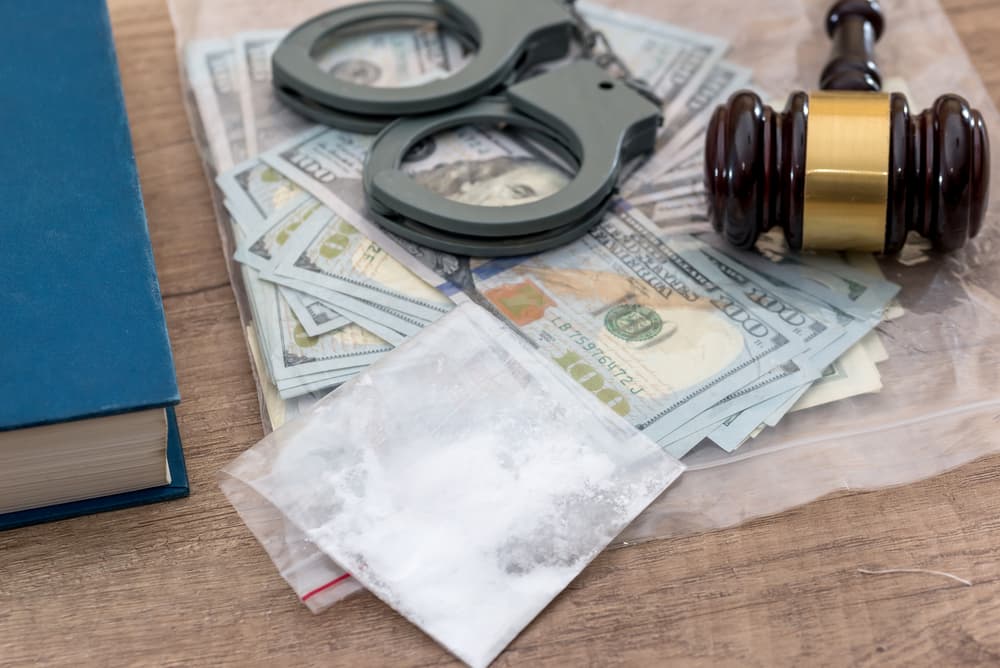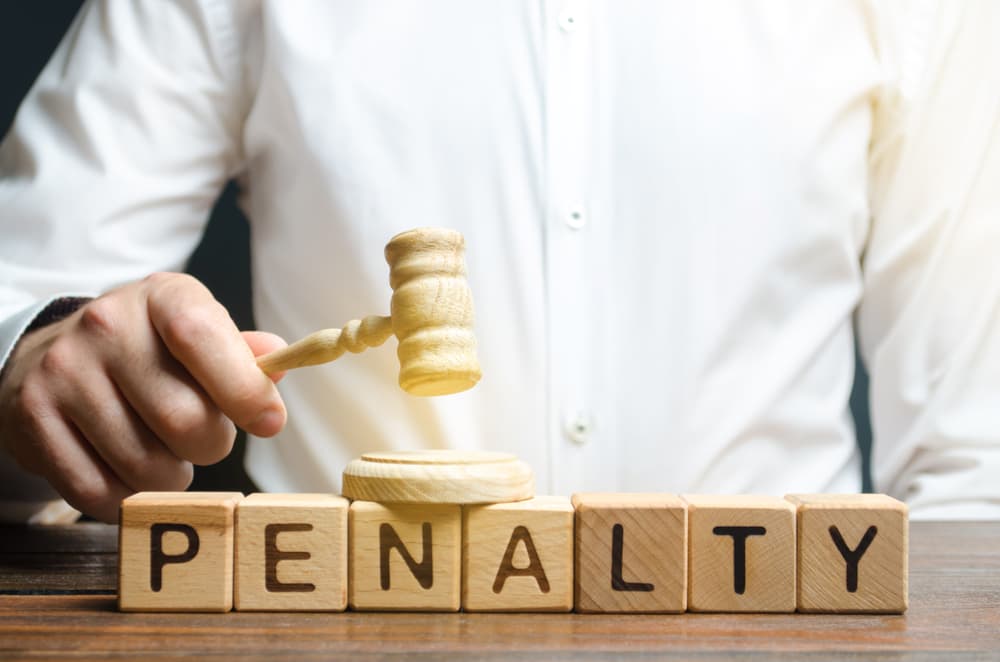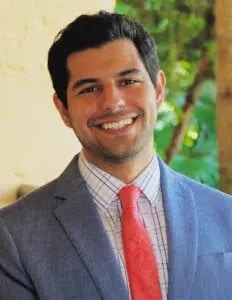What Are the Penalties for Drug Possession in Florida?
Florida drug possession attorneys see daily how aggressively the state prosecutes drug offenses. Last year alone, prosecutors filed over 100,000 possession charges, leading to felony convictions for people caught with substances as commonplace as prescription medications without valid prescriptions.
In some counties, a single marijuana joint can still bring criminal charges despite changing attitudes statewide. The difference between misdemeanor probation and five years in prison often depends on unexpected factors, such as the weight of the container holding the drugs or your distance from the nearest school.
These charging decisions play out differently across jurisdictions from Jacksonville to Key West, where local prosecutors interpret the same statutes in widely different ways.
Call Lopez Law Group at (727) 933-0015 to speak with a Florida drug possession attorney before talking to police or accepting any plea deal that could permanently mark you as a drug offender.
Key Takeaways for Drug Possession Penalties in Florida
- Drug possession penalties in Florida range from first-degree misdemeanors to first-degree felonies based on substance type, amount, and location of arrest.
- Possessing any amount of certain drugs like heroin or fentanyl automatically triggers felony charges with mandatory minimum sentences.
- Prescription medications without valid prescriptions carry the same penalties as street drugs under Florida law.
- Drug court programs and pretrial diversion may help first-time offenders avoid convictions and maintain clean criminal records.
- Enhanced penalties apply near schools, churches, parks, and public housing regardless of whether children were present.
Understanding Florida’s Drug Schedules and Possession Charges
Florida classifies controlled substances into five schedules based on medical use and addiction potential under Florida Statute Chapter 893. Schedule I drugs like heroin have no accepted medical use and high abuse potential. Schedule V substances like certain cough syrups have accepted medical uses with lower abuse risks.
Your charges and potential penalties depend heavily on which schedule contains the substance found in your possession.
Schedule I and II Substances Bring Automatic Felony Charges

For example, possession of 4 grams or more of heroin or fentanyl, 28 grams or more of cocaine, or similar amounts of other controlled substances triggers the lowest tier of trafficking charges.
Each trafficking charge carries mandatory minimum sentences. Examples include:
- 4 to 14 grams of fentanyl: Minimum 7 years in prison
- 28 to 200 grams of cocaine: Minimum 3 years in prison
- More than 20 grams of marijuana: Third-degree felony; trafficking at 25 pounds or more triggers mandatory prison terms.
In short, even small amounts of Schedule I or II drugs can lead to felony prosecution, and larger amounts expose defendants to long mandatory prison sentences under Florida’s trafficking laws.
Cannabis Possession Penalties Vary by Amount
Marijuana remains illegal for recreational use throughout Florida despite medical marijuana programs and decriminalization efforts in some cities. Possession of 20 grams or less constitutes a first-degree misdemeanor punishable by up to one year in jail. Amounts over 20 grams become third-degree felonies with five-year maximum sentences.
Some jurisdictions like Miami-Dade County offer civil citations for small amounts instead of criminal charges. However, St. Petersburg and most Tampa Bay municipalities still prosecute marijuana possession criminally. A joint that results in a civil citation in Miami may still lead to arrest and criminal prosecution in Pinellas County.
Misdemeanor vs. Felony Drug Possession Penalties
The distinction between misdemeanor and felony drug charges affects your entire future beyond just potential jail time. Misdemeanors may allow record sealing after completion of probation. Felony convictions create permanent criminal records that affect employment, housing, and professional licenses throughout Florida.
First-Degree Misdemeanor Possession Charges
First-degree misdemeanors apply to marijuana under 20 grams and certain other limited circumstances. Maximum penalties include one year in county jail, one year of probation, and $1,000 in fines. Judges often impose drug education classes, community service, and random drug testing as probation conditions.
Many first-time offenders receive probation without jail time, especially with experienced legal representation. However, violating probation terms leads to immediate arrest and potential maximum sentences. Missing a drug test or facing new charges during probation often results in harsher penalties than the original offense carried.
Third-Degree Felony Possession Penalties
Most drug possession charges in Florida constitute third-degree felonies carrying these potential penalties:
- Up to 5 years in Florida state prison
- Up to 5 years of felony probation
- Maximum $5,000 fine plus court costs and fees
- Driver’s license suspension for 2 years
- Permanent felony criminal record
These maximum penalties give prosecutors significant leverage in plea negotiations, especially when defendants face multiple charges from a single arrest. The threat of prison time and felony convictions pushes many defendants to accept plea deals they might successfully fight at trial.
First and Second-Degree Felony Enhancements
Certain circumstances elevate possession charges to more serious felonies. Possessing 10 grams of certain substances like fentanyl triggers first-degree felony charges with 30-year maximum sentences. Prior drug convictions also enhance new charges under Florida’s habitual offender statutes.
Location matters significantly for penalty enhancements. Drug possession within 1,000 feet of schools, churches, parks, or public housing projects may upgrade charges by one degree. These zones encompass much of urban areas like downtown St. Petersburg and Tampa, so enhanced charges are common even when no children are present.
Prescription Drug Possession Without Valid Prescriptions
Possession of prescription medications such as Xanax, Adderall, oxycodone, or hydrocodone is unlawful without a prescription and results in the same charges as street drugs. The existence of a valid prescription at the time of the alleged offense is an absolute defense but must be affirmatively proven with documentation.
Proving Valid Prescriptions in Court
Having a valid prescription provides complete defense to possession charges, but you must prove the prescription existed at the time of arrest. Showing a bottle with your name doesn’t always suffice if pills were in different containers. Prosecutors often argue that having more or fewer pills than the prescription date suggests illegal possession.
Traveling with medications in pill organizers or unmarked containers often creates proof issues during traffic stops. Officers frequently arrest people with valid prescriptions who cannot immediately verify their legal right to possess the medications. Fighting these charges requires documentation from pharmacies and prescribing physicians.
Doctor Shopping and Prescription Fraud Charges
Obtaining prescriptions from multiple doctors without disclosure, known as doctor shopping, brings separate felony charges under Florida Statute 893.13. Using fake prescriptions or altering valid prescriptions constitutes prescription fraud with enhanced penalties. These charges often accompany possession cases when investigators review pharmacy records.
Enhanced Penalties for Drug Possession Near Protected Areas

Drug possession within these zones can lead to harsher penalties, including an increase of one statutory degree or the imposition of mandatory minimum sentences. These enhancements apply at all times, regardless of whether the facility is open or children are present.
For example, a third-degree felony for cocaine possession becomes a second-degree felony, raising the maximum penalty from 5 to 15 years in state prison. Similarly, possession of under 20 grams of marijuana, which is usually a first-degree misdemeanor, may be charged as a third-degree felony with up to 5 years in prison.
These enhancements apply even to simple possession, not only sales or possession with intent to distribute, and they apply regardless of a defendant’s intent or the presence of minors.
Mapping Drug-Free Zones in Your Case
To use these enhancements, prosecutors must show the offense occurred within 1,000 feet of a protected location, measured in a straight line from property boundaries.
In dense urban areas like Tampa and St. Petersburg, overlapping zones often cover entire neighborhoods. In more rural counties such as Pasco or Hernando, zones are fewer but can include unexpected locations.
Defense challenges typically focus on whether the alleged location qualifies under the statute. Not every building with children qualifies as a childcare facility, and precise measurements are essential to contest applicability.
Alternative Sentencing and Diversion Programs
First-time offenders and those with minimal criminal histories may qualify for programs that avoid convictions and jail time. These alternatives focus on treatment rather than punishment while holding participants accountable through supervision and regular court appearances.
Drug Court Programs in Florida
Drug courts operate in most Florida counties, offering intensive supervision and treatment instead of incarceration. Participants attend regular court sessions, submit to frequent drug testing, complete treatment programs, and maintain employment or education. Successful completion results in dismissed charges or reduced sentences.
Eligibility varies by county and typically excludes people with violent histories or drug trafficking charges. Pinellas County’s Adult Drug Court requires approximately 12-18 months of participation. Hillsborough County operates similar programs with slightly different requirements and timelines.
Pretrial Intervention and Diversion
Pretrial intervention programs allow eligible defendants to avoid prosecution entirely through completion of supervised programs. Participants typically complete community service, attend drug education classes, and avoid new arrests for specified periods. Successful completion results in dropped charges without convictions.
These programs preserve clean criminal records for employment and housing purposes. However, most counties only allow one pretrial diversion opportunity per lifetime. Using diversion for minor drug possession means it won’t be available for future arrests, regardless of circumstances.
Defenses to Drug Possession Charges in Florida
A skilled Florida drug possession attorney examines every aspect of arrests to identify viable defenses. Constitutional violations during traffic stops or searches may result in suppressed evidence. Factual defenses challenge whether clients actually possessed or knew about alleged drugs.
Illegal Search and Seizure Defenses
The Fourth Amendment limits when police may search vehicles, homes, and persons for drugs. Officers need probable cause for warrantless searches in most situations. Common constitutional violations that lead to suppressed evidence include:
- Traffic stops extended beyond reasonable time for citation purposes
- Searches based solely on nervousness or refusal to consent
- Home entries without warrants or valid exceptions
- Pat-downs exceeding scope of weapons searches
Successful suppression motions eliminate illegally obtained evidence from trials, often resulting in dismissed charges. Even when drugs were clearly present, constitutional violations may prevent convictions.
Constructive Possession Challenges
Prosecutors must prove defendants knew about drugs and had control over them for possession convictions. Constructive possession applies when drugs weren’t on your person but were within reach or control. Simply being near drugs doesn’t establish possession without additional evidence of knowledge and control.
Passengers in vehicles where drugs are hidden may avoid convictions by raising constructive possession challenges. Living in a residence where roommates keep drugs does not automatically establish criminal liability. These defenses require careful examination of facts and aggressive advocacy at trial.
How Lopez Law Group Defends Against Florida Drug Possession Charges
Lopez Law Group’s criminal defense team handles drug possession cases throughout the Tampa Bay region, from simple marijuana charges in St. Petersburg to serious trafficking allegations in Clearwater. Our Florida drug possession attorneys understand how Pinellas County prosecutors charge these cases differently than neighboring Hillsborough or Pasco counties.
The firm’s experience with Florida drug crimes spans the full spectrum from minor possession to major trafficking operations across state lines. Our Florida drug possession lawyers examine every aspect of your arrest, from the initial traffic stop on Interstate 275 to the field tests conducted on Madeira Beach.
They challenge illegal searches, question chain of custody procedures, and negotiate with prosecutors who might otherwise push for maximum penalties.
FAQs for Working With a Florida Drug Possession Attorney
What happens at my first court appearance for drug possession charges?
Your arraignment involves entering a plea and potentially addressing bond conditions. The judge reads formal charges and confirms your attorney representation.
Most defendants plead not guilty initially while attorneys investigate defenses and negotiate with prosecutors. Missing arraignment results in arrest warrants and potentially higher bonds.
Can I get drug possession charges dropped if I have addiction problems?
Addiction alone does not eliminate criminal charges, but it may open opportunities for alternative resolutions. Drug court programs specifically target people with substance abuse issues.
Judges consider addiction during sentencing and may order treatment instead of incarceration. Documented treatment efforts before court demonstrate responsibility and may improve outcomes.
How do prior drug convictions affect new possession charges?
Previous drug convictions enhance penalties and limit diversion options for new charges. Second possession offenses often face mandatory jail time or longer probation terms.
Multiple prior convictions trigger habitual offender enhancements with significantly increased sentences. Prior convictions also affect prosecutor willingness to offer favorable plea agreements.
Will drug possession charges affect my driver’s license?
All drug convictions trigger automatic two-year license suspensions in Florida, even for charges unrelated to driving. Courts may grant hardship licenses for work and school with proof of need.
Refusing to submit to drug testing during arrests brings separate license suspension consequences. Multiple drug convictions lead to longer suspension periods.
Can the police charge me for drugs found in my car if others were present?
Prosecutors must prove you knew about and controlled drugs to convict on possession charges. Multiple occupants create reasonable doubt about who possessed drugs unless additional evidence links them to specific individuals. Factors like drug location, ownership admissions, and fingerprints affect whether charges succeed against particular defendants.
Fight Your Drug Charges With Experienced Legal Defense

SeanCarlo Lopez, Florida Drug Possession Attorney
Drug possession convictions follow you forever in Florida, affecting jobs, housing, and opportunities long after completing sentences. Employers conducting background checks will see drug convictions, and landlords screening tenants will find your criminal history. Professional licenses from nursing to real estate become impossible with drug records.
Lopez Law Group fights these charges throughout the Tampa Bay area with aggressive defense strategies tailored to each case’s unique facts. Our criminal defense attorneys know which prosecutors offer reasonable deals and which judges consider alternative sentences.
We work to protect your future by challenging evidence, negotiating reductions, and fighting for dismissals whenever possible. Call (727) 933-0015 now to speak with a Florida drug possession attorney before making decisions that affect the rest of your life.
